Know The Dangers Of Mixing Prescription Medication With Alcohol
Millions of people across the world indulge in alcohol while being on medication, without knowing the fact that alcohol interacts adversely with some medicines.
Depending on what medication (prescribed or over-the-counter) you’re taking, drinking alcohol with it can make medication less effective, and can lead to dangerous health consequences including over-dosage and even death.
Read on to know about the dangers of mixing alcohol with common prescription and over-the-counter medications…
Why Medication and Alcohol Should Not Be Mixed
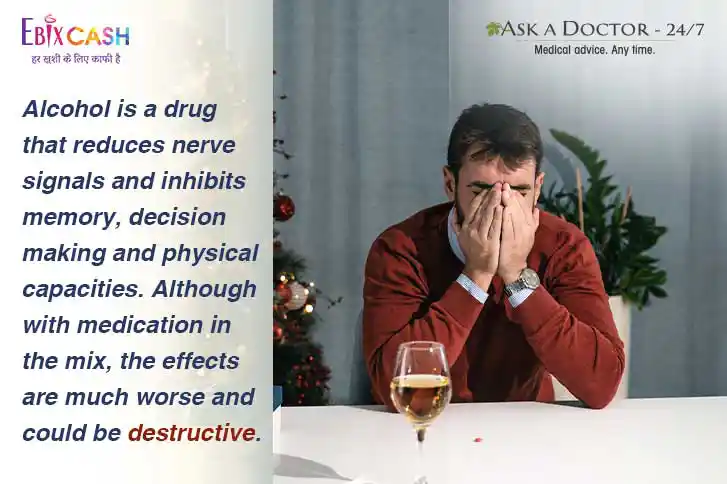
Combining alcohol can make some medications work less effectively by interfering with their absorption in the digestive tract. Also, alcohol in some cases may increase the bioavailability of a drug and raise the concentration of the medicine in your blood to toxic levels.
Moreover, alcohol consumption can make the side effects of a medication worse or can cause even new symptoms.
Common Side-effects of Using Alcohol with Certain Medicines
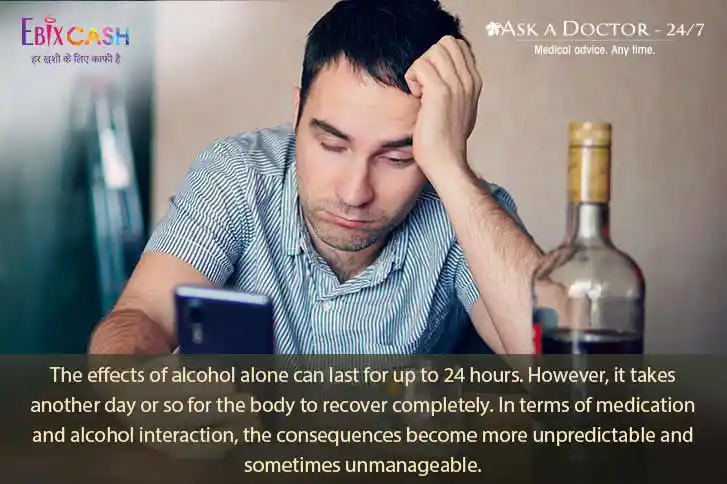
Some common side effects that can occur from mixing drugs with alcohol include:
- Upset stomach, nausea, or vomiting
- Drowsiness, fatigue, or excessive sleep
- Dizziness or fainting
- Headaches
- Blood pressure changes
- Changes in behavior
- Changes in emotional or mental state
- Loss of motor coordination leading to accidents
Contact your doctor immediately if you see someone experiencing a drug overdose or alcohol poisoning.
Long-term Side Effects of Mixing Alcohol with Prescription Drugs
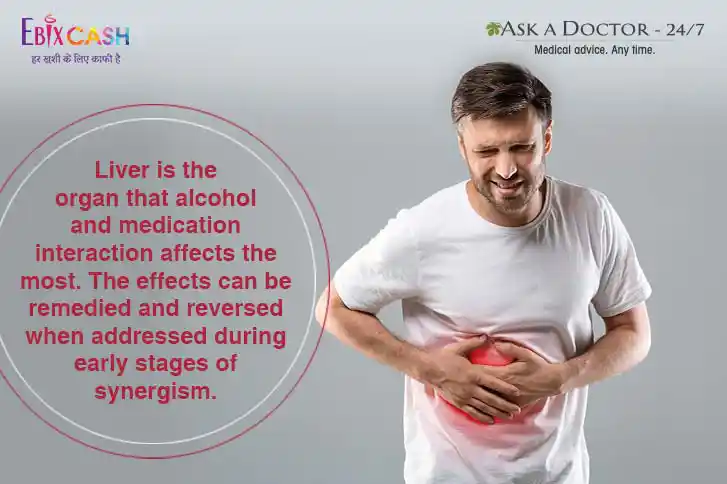
Some chronic or life-threatening health problems that occur in the long run due to mixing alcohol with medicines include:
- Liver damage, failure, or cancer
- Heart problems, stroke, or heart attack
- Internal bleeding
- Brain damage
- Depression, anxiety, or other mental health problems
Medications That Interact with Alcohol
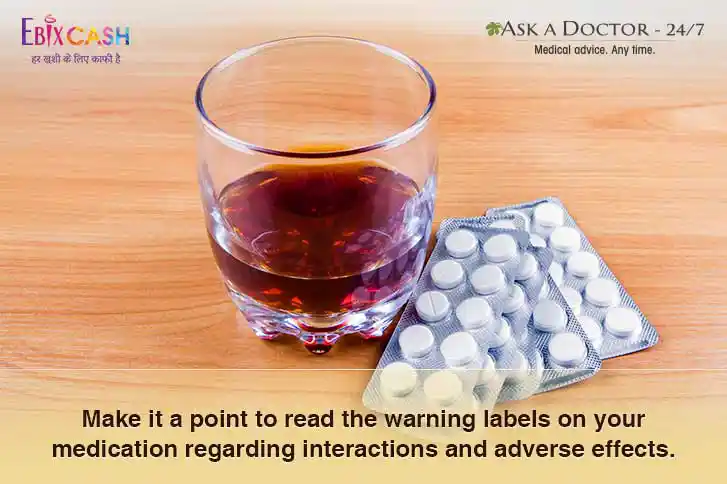
There are hundreds of drugs that can cause severe consequences when used with alcohol. Enlisted below are a few common ones:
Alcohol with Allergy, Cold, Cough, and Flu Medication
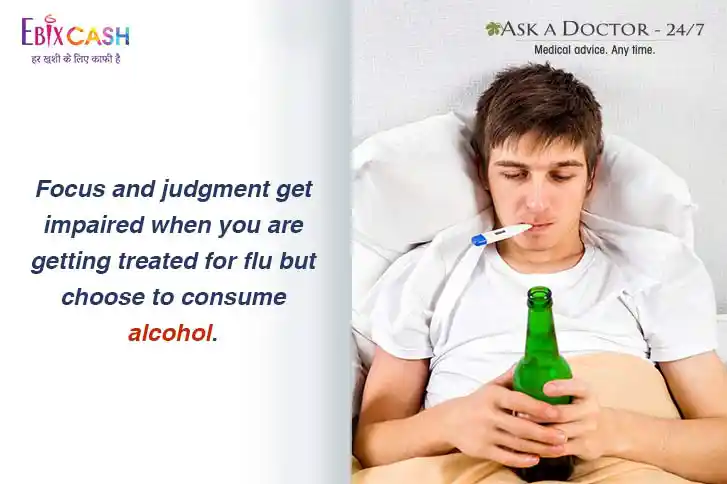
While taking allergy medications or any cold and flu formulation you should totally avoid drinking alcohol. Experts explain that combining both these substances intensifies the associated after-effects such as drowsiness, dizziness, and motor impairment to the level that it can damage your focus and judgment capabilities.
Alcohol with Antibiotics
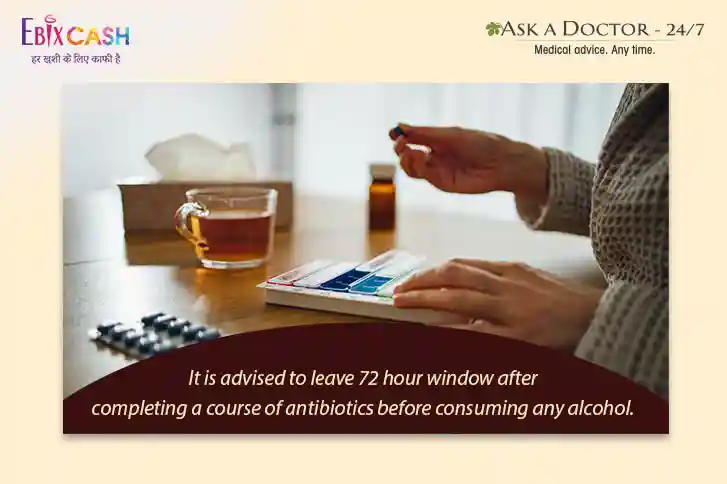
Antibiotics work less effectively when combined with alcohol. Also, it can result in severe reactions making you extremely sick with nausea and vomiting.
In certain cases, mixing both substances is also associated with symptoms like tachycardia (rapid heartbeat), sudden changes in blood pressure, gastrointestinal upset, headache, flushing, and liver damage.
Alcohol with Angina Medication
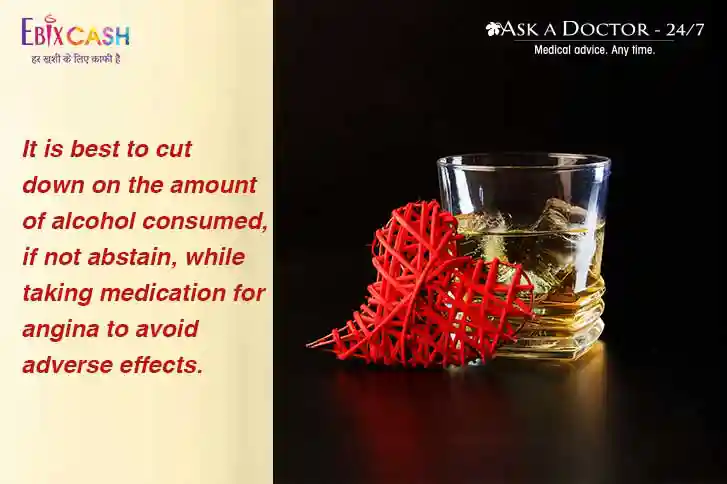
If you are dealing with angina (ischemic chest pain) and are prescribed with a medication called nitroglycerin, say a complete no to alcohol. As, drinking alcohol while taking nitroglycerin can cause a rapid heartbeat (tachycardia), sudden changes in blood pressure, dizziness, and fainting.
Alcohol with Antidepressants
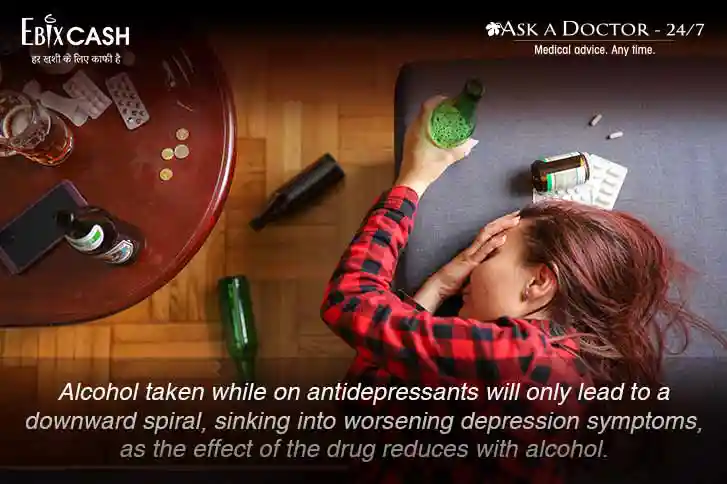
Antidepressant drugs are specifically developed to treat clinical depression. People treated for depression or other mental health conditions such as anxiety disorder, bipolar disorder, post-traumatic stress disorder, or obsessive- disorder, must limit or completely avoid alcohol.
People use alcohol with antidepressants to achieve some sort of enhanced psychoactive effect or euphoria. However, contrary to this, alcohol use makes symptoms of depression worse, putting the patient at risk of serious side effects.
Alcohol with Prescribed Painkillers
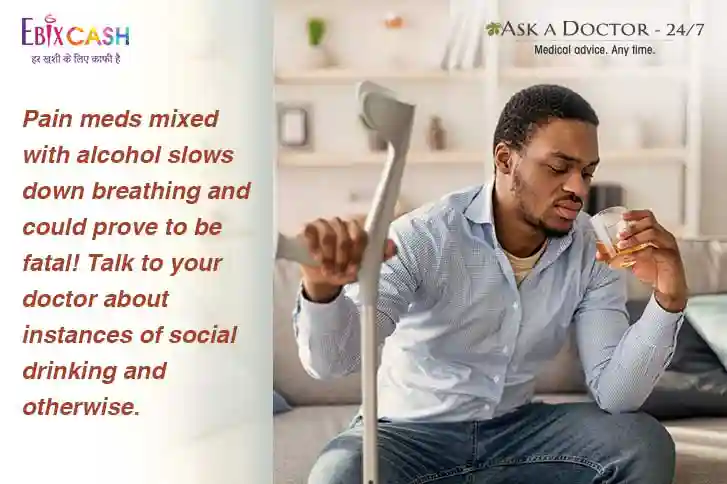
If you are on a course of prescription-only painkillers, such as tramadol, gabapentin and codeine, and other morphine-like drugs, you must avoid alcohol use. Drinking alcohol alongside these medications can lead to severe drowsiness and other side effects, such as nausea, and one can end up with serious consequences.
Alcohol with Anticonvulsant Drugs
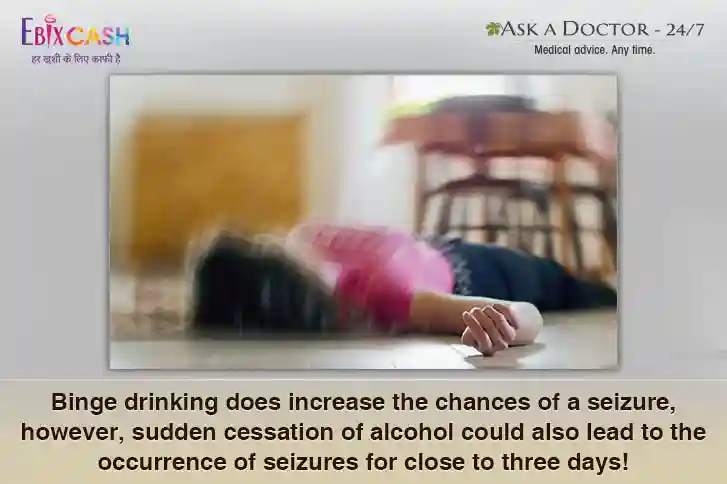
Anticonvulsant drugs are a part of several classes of drugs that are prescribed as mood stabilizers or to control seizures. In some cases of seizures, benzodiazepines and barbiturates may be prescribed. Topiramate, Gabapentin, Lamotrigine, and Carbamazepine are some antiepileptic drugs that are not benzodiazepines and barbiturates.
Here are the effects of alcohol on these two classes of drugs:
- A decrease in the drug’s ability to control seizure activity, resulting in an increased risk of getting a seizure
- Generalized effects that can include dizziness, lethargy, and issues with motor functioning, including coordination and reaction time
- Increased depression and suicidality
Having said all the above, please note that the list of medicines that interfere with alcohol is too exhaustive to be included here in this write-up. So make sure to always check with your healthcare practitioner whether it is OK to have even one drink or not with your medicines. Staying mindful is the key to staying safe.
For any further doubts concerning alcohol and prescription medication, talk to our Addiction Medicine Specialist to gain clarity.
Ask a Specialist
Recent Questions


